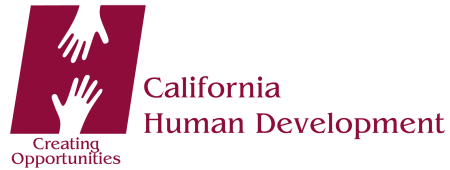Adriana was born in Santa Rosa, California, and has one older brother, so she is the youngest in her family. Adriana has had a somewhat difficult family life because her mother became the sole provider for her family when Adriana’s father left. These were difficult moments for her as a child, but even though she faced adversity in her family structure, Adriana never gave up on the dream of continuing her education. Adriana’s mother has always worked hard to see her continue in school and better her life through education. Her mother wants her daughter to have a better paying job and not work under the hot sun, picking, tying, and cleaning the grapes as she has done all her life. Adriana’s mother has high hopes for Adriana and that is why she came to this country to better her future and her children’s future.
When Adriana thinks of her working mother, the emotions come, but she immediately regains her composure and realizes how far she has come from being that introverted and shy girl. Adriana first heard about the program through her mother and stepfather. She remembers her mother getting home from visiting the Santa Rosa main office to inquire about California Human Development’s (CHD) programs, and as they say, “mothers know best”. Her mother told her about CHD’s Sr. Case Manager Lorena Sotelo, and how she had programs called Work Experience (WEX). She told Adriana to call and find out if she could get into one of the programs.
Adriana like most teenagers her age, just put it off day after day, until one day, Sr. Case Manager called her. Lorena insisted on her coming to the office to talk about the programs. When Adriana arrived, she did not know what to expect, since she was not really motivated, but then when she heard about working as an Immigration Assistant her curiosity was triggered. The program gave her a sense of excitement and she wanted to learn more. She was informed about the work that Immigration & Citizenship program provides to the community, and she was in awe. From that point on Adriana was adamant about joining CHD.
We performed an intake and Adriana was found eligible for the WIOA 167 program. She qualified by being a dependent of a Farmworker. When she started Adriana was very introverted and shy, she had some fear of interacting with clients, and her phone skills needed to improve. Day by day Adriana was becoming better at preparing forms for DACA, Citizenship, and Permanent Residency.
She also gained skills in copying, faxing, filing, and various office work duties. By the second month of Adriana performing her job, she was noticed by her co-workers and supervisor as a brilliant young lady with a great future.
Adriana’s demeanor and flexibility in her job assignments were excellent. She started building her resume and cover letter to apply to various positions that opened at Job Link. One position was for a Navigator and another position was for Case Management at the Healdsburg Day Labor Center. Adriana was still not very used to interviewing techniques, but we worked with her until she became more relaxed. Adriana has learned how to present herself not only verbally, but also as to her dress etiquette.
Adriana was traveling from Cloverdale to Santa Rosa, and gas expenses began to be a burden, so CHD was able to assist her with support services for gas expenses in the amount of $100. Adriana has always had a responsible character and she is also very trustworthy and honest. This is a great asset to have in an environment in which confidentiality is a must for our programs.
When her WEX time was getting close to the end of her term, Adriana was offered a full-time job at CHD in the Immigration & Citizenship Department in our Santa Rosa Headquarters. Adriana has now gone from part-time as a WEX to a full-time position as a Case Manager, Adriana also has full benefits. Adriana in cooperation with CHD is continuing her education and only expects good things by working at CHD. One day she hopes to earn a Master’s Degree in Psychology with a focus on Postpartum. Her heart and desire were to be a member of this great organization that has helped her so much, but also because she finds assisting others rewarding.
Adriana wants to pay it forward and what better way to do this than working with an organization that cares about its employees and their future. We at California Human Development are very proud to be part of Adriana’s growth. We know that her future is just starting and that she will be very successful in all that she does toward becoming self-reliant and economically independent.
Story Written by: Lorena Sotelo, WFD& FWS Senior Case Manager
